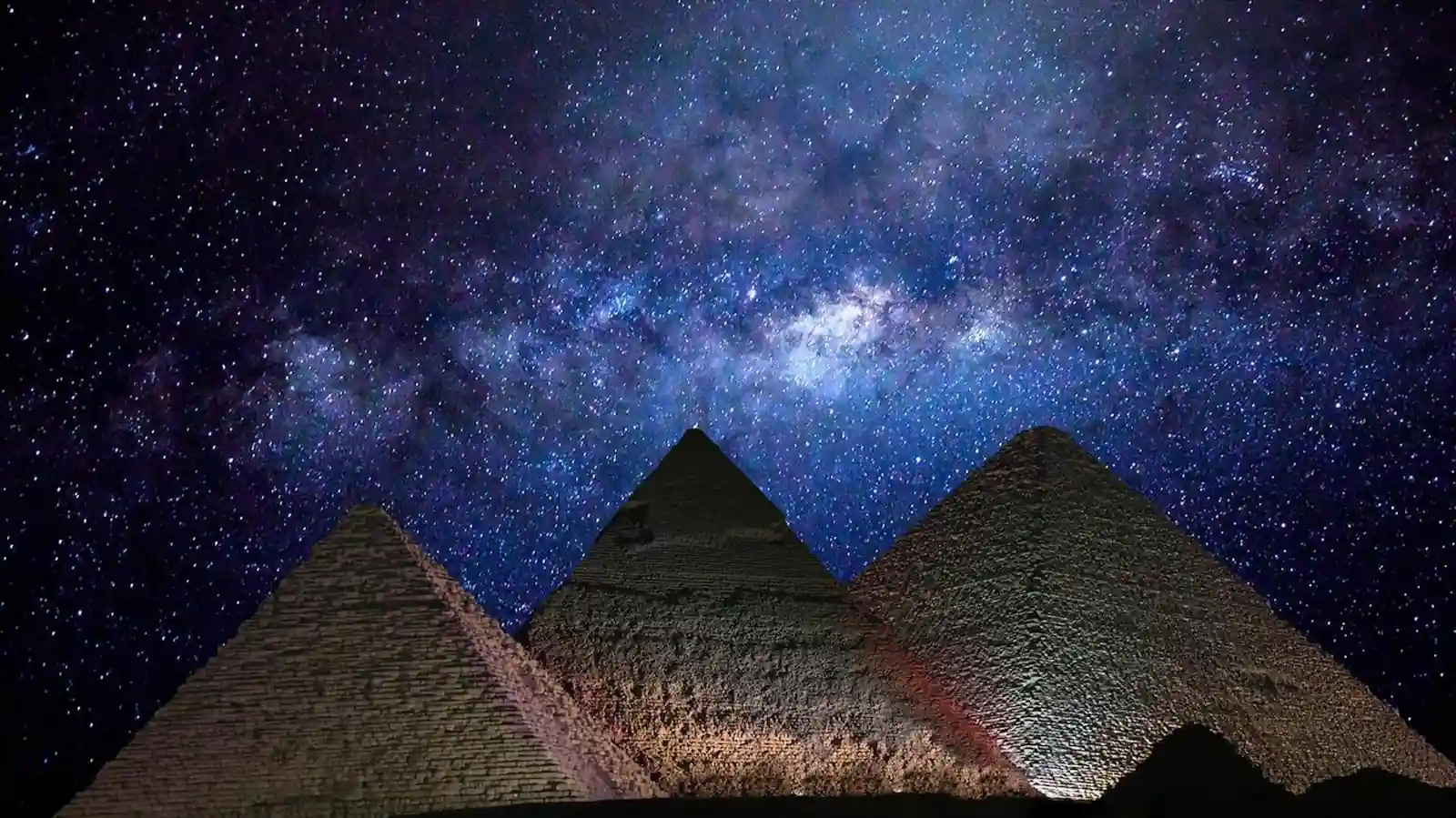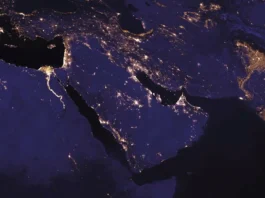Introduction: Beyond the Myth of Primitive Ancestors
In an age of rapid technological progress, we often assume humanity’s journey has been a linear ascent, with ancient peoples being less sophisticated. This perspective, however, may be a profound misconception, obscuring a rich tapestry of ancient advanced knowledge that challenges conventional historical timelines. What if civilizations predating our own possessed profound insights mathematical, astronomical, architectural, and spiritual that we are only now grasping? This article explores the intriguing possibility that “ancient wisdom” was not merely a precursor to modern science, but a distinct and, in some respects, even more sophisticated form of understanding. We will delve into the lost knowledge of ancient civilizations, examining its disappearance and the invaluable lessons we can glean. Prepare to question the established narrative, for you are about to discover that they knew more than you think.

Our historical education often presents a neat, linear progression of human development, overlooking the remarkable achievements and forgotten wisdom of the past that characterized many ancient societies. The notion that our ancestors were primitive is increasingly challenged by archaeological discoveries.
Consider the precision of the ancient Egyptians, who aligned the Great Pyramid of Giza to true north with incredible accuracy, showcasing sophisticated understanding of astronomy and geometry. Similarly, the Indus Valley Civilization, particularly Mohenjo-daro, featured advanced drainage and sanitation systems. These are hallmarks of civilizations possessing deep and practical lost knowledge of ancient civilizations.

Unveiling Forgotten Technologies and Addressing “Forbidden Questions”
One of the most compelling arguments against the linear progression of human knowledge comes from the existence of ancient civilizations advanced technology. These sophisticated artifacts and structures defy easy explanation within conventional historical frameworks, suggesting a level of scientific and engineering prowess rediscovered much later.
Enigmatic Artifacts: Glimpses of Advanced Ancient Knowledge
Consider these enigmatic artifacts:
- The Antikythera Mechanism (Greece, circa 100 BCE): Often called the world’s first analog computer, its complex gears predicted astronomical positions and eclipses with astonishing accuracy. This level of mechanical sophistication was not seen again until the 14th century, hinting at broader lost knowledge of ancient civilizations in precision engineering.

- The Baghdad Battery (Iraq, circa 250 BCE – 640 CE): This artifact, a clay jar with copper and iron, is theorized to be an ancient electrical battery. If used for electroplating or therapy, it represents an understanding of electricity far predating its conventional discovery, raising a “forbidden question” about ancient understanding of natural forces.

- Nanostructures in India’s Iron Pillar of Delhi (circa 400 CE): Standing for over 1,600 years without significant corrosion, its rust-resistance is due to a complex phosphatic passivation process. This sophisticated material property, akin to modern nanotechnology, points to extraordinary ancient advanced knowledge in material science that has been largely forgotten.

Mainstream archaeology often categorizes these findings as anomalies. But what if these are fragments of a more widespread technological understanding that has since been lost? This challenges our historical narrative. If ancient civilizations possessed such advanced technology, modernity’s monopoly on intelligence becomes untenable. If their spiritual and scientific advancements were intertwined, today’s materialistic approach appears incomplete.
The reluctance to explore these “forbidden questions” is not because they are false, but because they are “dangerously true.” They threaten to dismantle entrenched beliefs about human progress.
Sacred Knowledge: Science with Soul and the Forgotten Wisdom of the Lost Civilizations
The modern scientific paradigm often separates science and spirituality. Knowledge is compartmentalized, and objective truth is divorced from ethics. However, delving into the forgotten wisdom of the past reveals a different approach. For many ancient cultures, knowledge was sacred, intertwined with spiritual beliefs, cosmic understanding, and a holistic view of existence. This integrated approach is a hallmark of ancient advanced knowledge.

Builders of monumental structures were not just engineers; they were mystics, astronomers, and philosophers, seeing no division between material and spiritual. Mathematics was a divine language, architecture embodied cosmic harmony, and medicine encompassed physical and spiritual well-being. This holistic paradigm is exemplified in the Islamic Golden Age, where scholars saw no conflict between faith and science. The pursuit of knowledge (‘ilm) was worship.
Ancient civilizations functioned on similar principles. Their knowledge systems were profoundly integrated intellect and spirituality, empirical fact and profound meaning. This contrasts sharply with modern science, which, despite its immense power, often operates in a spiritual vacuum. It excels at dissecting the material world but struggles with fundamental human questions about purpose. This fragmentation of knowledge, where science is detached from soul, is perhaps the greatest wisdom we have collectively lost. The lost knowledge of ancient civilizations reminds us that true understanding encompasses both the measurable and the immeasurable.
Architecture That Speaks to the Stars: Echoes of Ancient Advanced Knowledge
Stepping into the ruins of Luxor, the ziggurats of Mesopotamia, or the pyramids of Teotihuacan reveals something far grander than mere construction. These were profound statements, meticulously aligned with celestial bodies, crafted with harmonic ratios, and imbued with deep symbolic meaning. This architectural prowess is a testament to the ancient advanced knowledge possessed by these civilizations, a knowledge that saw the cosmos reflected in the earthly realm.
Modern architecture often prioritizes function. Ancient structures were cosmic, serving as conduits between human and divine. The precision of ancient builders is astounding:
- The Great Pyramid of Giza is aligned to true north with astonishing accuracy, suggesting sophisticated understanding of astronomy and geodesy, a prime example of lost knowledge of ancient civilizations.
- Angkor Wat in Cambodia is a terrestrial model of the Hindu cosmos, its layout and alignments reflecting Mount Meru, showcasing a holistic approach to creation, a key aspect of the forgotten wisdom of the past.
- Stonehenge in England is famously aligned with solstices and equinoxes, tracking solar and lunar movements, demonstrating deep empirical understanding of celestial mechanics.

These alignments were not accidental. They resulted from a profound relationship with the heavens, viewing architecture as a sacred art. This highlights a crucial difference in worldview: ancient cultures perceived the universe as a living, interconnected entity. In Islamic architecture, too, we find this tradition of integrating the sacred with the structural. Geometry becomes a language of the divine. The suppressed history ancient civilizations reveals that our ancestors built not just for utility, but for meaning, connection, and dialogue with the universe.
Angkor – UNESCO World Heritage Centre
Knowledge Centers That Rival Our Own: The Legacy of Ancient Advanced Knowledge
Before modern universities, the world had extraordinary centers of learning that shaped civilization. These ancient knowledge hubs were vibrant ecosystems where ideas converged and the pursuit of understanding was sacred. Their existence underscores the depth of ancient advanced knowledge that flourished, challenging the notion that intellectual sophistication is recent.
Legendary Centers of Ancient Learning
Among the most legendary:
- The Library of Alexandria (Egypt, founded 3rd century BCE): More than a library, it was a research institute and beacon of Hellenistic scholarship, a pinnacle of lost knowledge of ancient civilizations in organized scholarship.
- The House of Wisdom (Bayt al-Hikma) in Baghdad (Iraq, founded 9th century CE): The intellectual heart of the Abbasid Caliphate, it was a massive translation and research center, propelling advancements far beyond its time and showcasing vibrant ancient advanced knowledge.
- Nalanda University (India, founded 5th century CE): One of the world’s first great residential universities, attracting scholars from across Asia. Its destruction marked a significant loss of forgotten wisdom of the past.

These institutions were civilizational engines—places where ideas collided and scientific understanding evolved. They did not separate secular from sacred knowledge, viewing the universe as a unified system. This integrated approach contrasts sharply with contemporary knowledge, often hyper-specialized and profit-driven. While we have more information, we may have less wisdom. The suppressed history ancient civilizations reveals that our ancestors cultivated a profound sense of purpose in their intellectual pursuits. They understood that true knowledge was about discerning meaning. The legacy of these centers reminds us of what is possible when intellectual curiosity combines with a holistic worldview.
Why the Knowledge Was Lost And Who Benefited: The Suppressed History of Lost Civilizations Civilizations
If ancient civilizations possessed profound ancient advanced knowledge and sophisticated technologies, where did it go? Was it simply lost to time, or deliberately erased? History suggests a significant portion of the forgotten wisdom of the past was actively suppressed or destroyed, forming a suppressed history ancient civilizations.
Centers of wisdom were often targeted during conflict, strategic acts aimed at dismantling intellectual infrastructure and rewriting history. The loss of these repositories is an incalculable blow to humanity’s collective memory.
Tragic Examples of Knowledge Suppression
Tragic examples:
- The Library of Alexandria: Suffered multiple destructions, obliterating centuries of research, a monumental loss of lost knowledge of ancient civilizations.
- The House of Wisdom (Bayt al-Hikma) in Baghdad: Destroyed during the Mongol invasion in 1258 CE, extinguishing a flourishing intellectual tradition and severing a vital link to preserved knowledge, contributing to suppressed history ancient civilizations.
- The Maya Codices: Systematically burned by Spanish conquistadors in 1562, destroying invaluable records and deliberately suppressing the forgotten wisdom of the past of an entire civilization.

These events were often calculated political strategies. Destroying knowledge resets power. Erasing a civilization’s memory strips its dignity. By painting the past as ignorant, new powers legitimize their rule. This deliberate obfuscation contributes to suppressed history ancient civilizations, making it difficult to grasp past achievements.
Therefore, what we perceive as “primitive” may be a distorted reflection of profound ancient advanced knowledge, stripped of context and misrepresented by those who benefited from its suppression. Understanding these acts of intellectual destruction is crucial for piecing together the true narrative of human progress and for recognizing the cyclical nature of knowledge. It compels us to question not just what was lost, but why and who benefited, urging us to look beyond accepted historical accounts.
Britanica – Library of Alexandria
What We Can Relearn Today: Rediscovering the Lost Knowledge of Ancient Civilizations
In an age of information overload and spiritual emptiness, the insights from the lost knowledge of ancient civilizations are increasingly relevant. Modern science, despite its power, often operates in a moral vacuum, measuring everything but struggling with fundamental human questions.
Ancient civilizations, with their holistic approaches, offer a profound mirror. They held keys we’ve discarded: unity between knowledge and wisdom, intellect and morality, progress and humility. This integration, a core component of the forgotten wisdom of the past, is what modern society lacks.
Today, interest in these ancient paradigms is growing. Scholars reexamine ancient texts, scientists validate ancient remedies, architects revisit ancient design principles, and philosophers rediscover metaphysics. For Muslims, this re-engagement is significant. Islam refined and elevated existing civilizations. The Qur’an exhorts believers to reflect on the past: “Travel through the land and observe how was the end of those before you…” (Qur’an 30:9). This is a call to learn from history, including the suppressed history ancient civilizations.
True revival requires reflection: How do we seek knowledge? Who controls it? What is it for? If ancient civilizations knew more, the question is not how much they knew, but how much we have forgotten and whether we have the humility to relearn what was lost. The path forward may lie in looking backward, integrating past insights with present advancements.
The Unseen Threads: Connecting Ancient Wisdom to Modern Challenges
The exploration of ancient advanced knowledge and the forgotten wisdom of the past holds profound implications for addressing modern challenges. In an era grappling with climate change, social fragmentation, and mental health crises, ancient holistic paradigms offer alternative frameworks. Their approaches, often dismissed, may contain the solutions we seek.
Lost Civilizations Solutions for Modern Problems
Consider ancient sustainability. Many cultures lived in harmony with environments, practicing sustainable agriculture and urban planning, stemming from a worldview recognizing interconnectedness and sacredness of nature. Modern industrial practices have led to ecological collapse. Re-examining this lost knowledge of ancient civilizations could provide blueprints for a sustainable future, shifting our relationship with Earth.
Ancient emphasis on spiritual and psychological well-being contrasts with modern epidemics of loneliness and anxiety. Ancient healing traditions, incorporating meditation and community, treated the individual holistically. The forgotten wisdom of the past suggests true health extends to flourishing and inner harmony. As modern healthcare struggles, these holistic approaches gain recognition.
The concept of suppressed history ancient civilizations forces us to confront power dynamics in knowledge. Who decides what is remembered? Who benefits from certain narratives? Systematic destruction of knowledge was an instrument of control. Understanding past suppression is crucial for fostering a more equitable and informed future. It highlights the importance of preserving diverse knowledge systems and challenging dominant narratives that may obscure valuable insights. By acknowledging the cyclical nature of knowledge and the deliberate efforts to erase certain histories, we can better appreciate the resilience of human intellect and the enduring power of truth.




